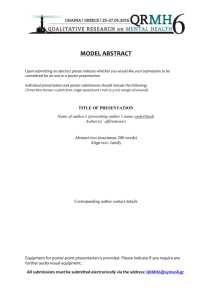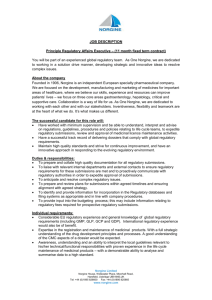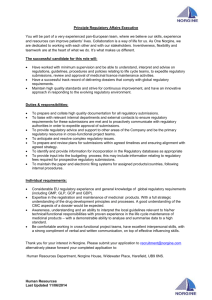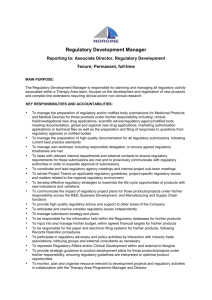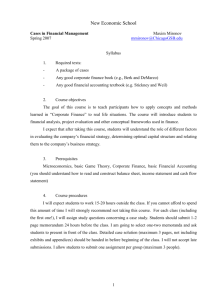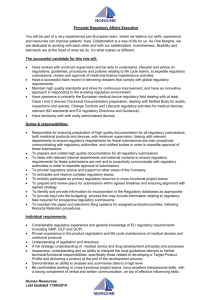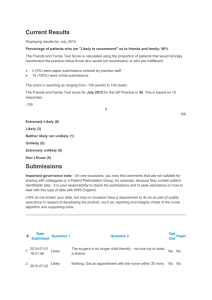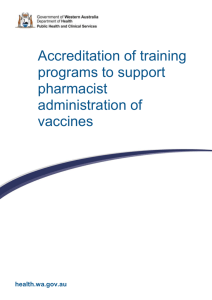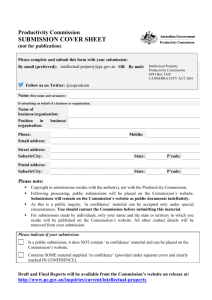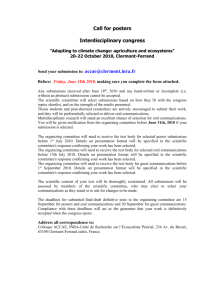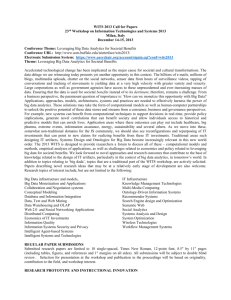Overview Report
advertisement
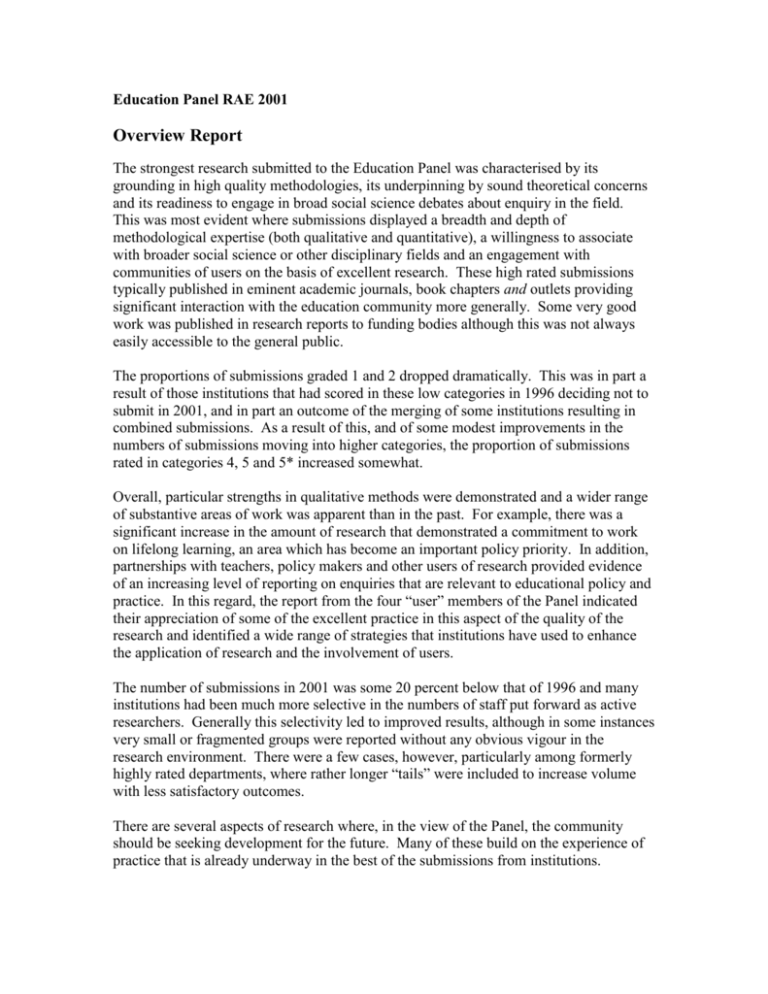
Education Panel RAE 2001 Overview Report The strongest research submitted to the Education Panel was characterised by its grounding in high quality methodologies, its underpinning by sound theoretical concerns and its readiness to engage in broad social science debates about enquiry in the field. This was most evident where submissions displayed a breadth and depth of methodological expertise (both qualitative and quantitative), a willingness to associate with broader social science or other disciplinary fields and an engagement with communities of users on the basis of excellent research. These high rated submissions typically published in eminent academic journals, book chapters and outlets providing significant interaction with the education community more generally. Some very good work was published in research reports to funding bodies although this was not always easily accessible to the general public. The proportions of submissions graded 1 and 2 dropped dramatically. This was in part a result of those institutions that had scored in these low categories in 1996 deciding not to submit in 2001, and in part an outcome of the merging of some institutions resulting in combined submissions. As a result of this, and of some modest improvements in the numbers of submissions moving into higher categories, the proportion of submissions rated in categories 4, 5 and 5* increased somewhat. Overall, particular strengths in qualitative methods were demonstrated and a wider range of substantive areas of work was apparent than in the past. For example, there was a significant increase in the amount of research that demonstrated a commitment to work on lifelong learning, an area which has become an important policy priority. In addition, partnerships with teachers, policy makers and other users of research provided evidence of an increasing level of reporting on enquiries that are relevant to educational policy and practice. In this regard, the report from the four “user” members of the Panel indicated their appreciation of some of the excellent practice in this aspect of the quality of the research and identified a wide range of strategies that institutions have used to enhance the application of research and the involvement of users. The number of submissions in 2001 was some 20 percent below that of 1996 and many institutions had been much more selective in the numbers of staff put forward as active researchers. Generally this selectivity led to improved results, although in some instances very small or fragmented groups were reported without any obvious vigour in the research environment. There were a few cases, however, particularly among formerly highly rated departments, where rather longer “tails” were included to increase volume with less satisfactory outcomes. There are several aspects of research where, in the view of the Panel, the community should be seeking development for the future. Many of these build on the experience of practice that is already underway in the best of the submissions from institutions. Methodology. The strengths of qualitative, and relatively small scale, research have been complemented by some increase in work that has also drawn on quantitative data. However, there is room for more approaches that use advanced quantitative methodologies and for education to play an active and significant role in methodological innovation. The training of research students should also be developing in ways that reflect this. This could encourage what would be a welcome increase in studies that are of a larger scale or longitudinal in nature. Substantive areas. While there has been an increasing amount of research in formal postcompulsory education, especially Adult and Higher Education, there is room for more in the Further Education Sector. With the exception of the field of Teacher Education, there could be more effort made to establish effective links between research on teaching and learning in the compulsory and post-compulsory sectors. A large proportion of the research output submitted for 2001 was policy related and indicated a commitment on the part of the research community to the analysis and improvement of policy. It is important, however, that education maintains a significant amount of its research activity within its version of “blue skies” research whether, for example, this be in areas such as basic understanding of learning and teaching in educational settings, philosophical and historical studies of the purposes of education or developments in the curriculum. Funding. Educational researchers, especially in institutions where the field is still in the process of becoming established, should continue to seek research funding from a wide range of sponsors, but should concentrate more firmly on winning competitive awards from, for example, the research councils. It is important that where the submitted research publications rest heavily on reports to funding bodies, those reports should either be designed to go beyond description and straightforward evaluation or be supplemented by other output that contributes in a more significant way to the national and international literature. Publication. It is important to maintain the breadth of outlets for high quality research publications that has been established for 2001. However, there is need for further development of research monographs and for research-based books that are aimed at practitioners. While it is accepted that those working in the area of education have pressure on them to write books and articles in the form of guidance for teachers or other practitioners, it has to be remembered that such writing is relevant for the research assessment exercise only if it is explicitly based on research. Within institution links. The linking that has been developing in some institutions between, on the one hand, education and continuing education departments and, on the other hand, social science faculties or clusters of departments should be continued more widely. It promises opportunities for methodological and theoretical or conceptual developments that can only add value to educational research. In institutions where educational researchers are spread across a variety of departments, or are situated in contexts where only a minority of staff are engaged in research, it is particularly important that an emphasis be placed on efforts to establish a supportive and coherent research culture.
